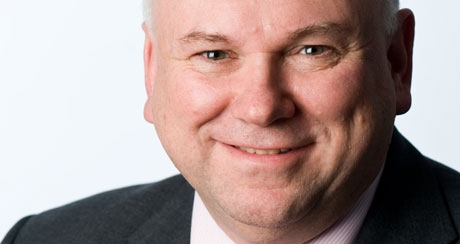
Wednesday, 15 May 2013 09:18
FCA's Adamson says trust in financial services at "all time low"

Clive Adamson, the FCA's director of supervision, says that after years of mis-selling trust in financial services is "at an all time low for a generation."
Mr Adamson called on the industry to back the FCA to help tackle the long term issue of lack of trust in financial services by working more closely with the FCA, providing intelligence on market abuse and always acting in customer's best interests and avoiding a narrow, tick-box approach.
He said the FCA was different to the FSA and there was a different culture. He said: "We are moving away from a tick box approach to being more pre-emptive.
"The FCA has new objectives, new powers and a new approach and we are going to be different. What we're trying to achieve is that firms across all sectors put the interests of their customers at the heart of how they run their businesses."
A key issue was lack of trust and restoring confidence in financial services.
"Trust in financial services is at an all-time low for a generation. A series of mis-selling scandals have rocked confidence," he said.
Mr Adamson told 350 delegates at the Morningstar 2013 London Investment Conference today (Weds 15 May) that the FCA would be different by being more "forward looking" and would "intervene earlier."
He said the regulator had been accused of being too reactive in the past but promised the FCA would be "pre-emptive." He said this would be a bold step in world terms as few regulators around the world were more than reactive.
Regulation under the FCA would be more than "narrowly complying with a set of rules" and would be much more about acting in the best interests of the customer at all times.
Mr Adamson said with only 2,800 staff and 650 front line staff and 25,000-plus firms to regulate the FCA would be asking for more help from the sector including intelligence and early warning so that it could intervene earlier.
Turning to the RDR he said that "by and large" most firms had coped well with the changes but there had been clear changes. Retails banks, for example, had almost pulled out entirely from offering advice and the adviser sector itself had clearly moved up the "wealth chain."
Some 31,132 advisers are now regulated by the FCA and some 5,250 firms had submitted the required professional standards data in time. There were 965 part qualified advisers and 122 advisers had been granted waivers.
Overall he said the RDR had bedded in well but there were some areas of "concern or interest" the FCA would be looking at including whether some providers were still trying to influence product distribution. Platforms and simplified advice would also be areas of interest.
He said the RDR would likely be reviewed in 2014 to assess its effectiveness but it was clear that it was beginning to lead to innovations in the advisory sector.
Mr Adamson called on the industry to back the FCA to help tackle the long term issue of lack of trust in financial services by working more closely with the FCA, providing intelligence on market abuse and always acting in customer's best interests and avoiding a narrow, tick-box approach.
He said the FCA was different to the FSA and there was a different culture. He said: "We are moving away from a tick box approach to being more pre-emptive.
"The FCA has new objectives, new powers and a new approach and we are going to be different. What we're trying to achieve is that firms across all sectors put the interests of their customers at the heart of how they run their businesses."
A key issue was lack of trust and restoring confidence in financial services.
"Trust in financial services is at an all-time low for a generation. A series of mis-selling scandals have rocked confidence," he said.
Mr Adamson told 350 delegates at the Morningstar 2013 London Investment Conference today (Weds 15 May) that the FCA would be different by being more "forward looking" and would "intervene earlier."
He said the regulator had been accused of being too reactive in the past but promised the FCA would be "pre-emptive." He said this would be a bold step in world terms as few regulators around the world were more than reactive.
Regulation under the FCA would be more than "narrowly complying with a set of rules" and would be much more about acting in the best interests of the customer at all times.
Mr Adamson said with only 2,800 staff and 650 front line staff and 25,000-plus firms to regulate the FCA would be asking for more help from the sector including intelligence and early warning so that it could intervene earlier.
Turning to the RDR he said that "by and large" most firms had coped well with the changes but there had been clear changes. Retails banks, for example, had almost pulled out entirely from offering advice and the adviser sector itself had clearly moved up the "wealth chain."
Some 31,132 advisers are now regulated by the FCA and some 5,250 firms had submitted the required professional standards data in time. There were 965 part qualified advisers and 122 advisers had been granted waivers.
Overall he said the RDR had bedded in well but there were some areas of "concern or interest" the FCA would be looking at including whether some providers were still trying to influence product distribution. Platforms and simplified advice would also be areas of interest.
He said the RDR would likely be reviewed in 2014 to assess its effectiveness but it was clear that it was beginning to lead to innovations in the advisory sector.
This page is available to subscribers. Click here to sign in or get access.
